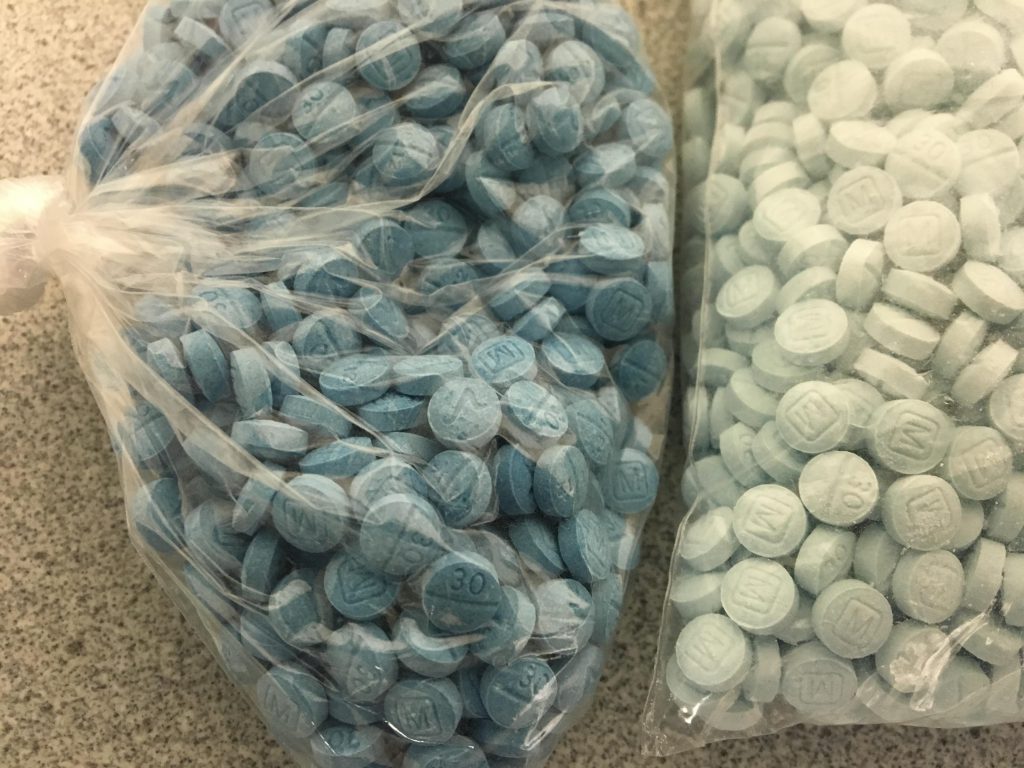On The Front Lines of Overdose Crisis
Two members of the Milwaukee Overdose Response Initiative talk about their jobs. It's not easy.
Amy Molinski, a peer support specialist with Community Medical Services, and Milwaukee firefighter Lieutenant Robert Rehberger meet a lot of people on what may be the worst — or ultimately the best — day of their life.
Their job is to make contact with people who have recently overdosed and try to give them help.
The opioid epidemic has been raging for more than a decade, but in recent years the number of overdose deaths has continued to worsen largely due to the increasing prevalence of dangerous synthetic opioids like fentanyl. In 2015, Fentanyl accounted for only 8% of all overdose deaths in the City of Milwaukee. Five years later, it would be found in approximately 73% of overdose deaths in the city. At the same time, the number of overdose deaths in Milwaukee County increased 60%.
The MORI program is composed of two teams, each with two firefighters and one peer specialist, like Molinski. Each day begins roughly the same way. First, the program supervisors, which includes Lieutenant Rehberger, look at fire department data on overdose calls from the previous day. Then the teams get in their cars and start driving the city, knocking on doors and working their way through the list.
Molinski, who is in recovery herself, explained that the MORI teams are often overcoming deep-seated distrust. “I really was led to believe all those years using and even for a long time in early recovery, that other people didn’t care about people like me, especially professional people,” she said.
Sometimes the first visit leads to treatment. But even then, navigating the system is another hurdle to clear, even for professionals like Molinski and Rehberger.
The same day they spoke with Urban Milwaukee, they had been struggling to make a placement at a treatment center.
“We’ve been working with this guy for a year,” Molinski said. “We’ve taken him to detox several times per his request.”
For the first time, he had spent more than 24 hours in detox and he wanted treatment, she said. They spent hours trying to find him a bed, asking the hospital to extend his stay until they could place him somewhere. They made 17 different calls trying to get him into treatment.
The system has programs that work, like MORI, and residential treatment centers, and medication-assisted treatment. What it doesn’t have is enough of them.
“We need more medication-assisted treatment facilities scattered throughout the city,” Molinski said. “We need more beds available for residential, and we need a process that is actually conducive to people getting well, and it’s just not there.”
The job isn’t easy. But they both said it’s worth it, especially when they follow up with people they’ve helped and witness the progress they’ve made in their life. But with nearly 700 overdose deaths in Milwaukee County last year, not every story has a happy ending.
Though Molinski and Rehberger did get a small win that day they made 17 calls. “We did seem to have a plan for our guy,” Rehberger said. “Yeah, we got him a bed,” Molinski added.
If you think stories like this are important, become a member of Urban Milwaukee and help support real, independent journalism. Plus you get some cool added benefits.
More about the Opioid Crisis
- Attorney General Kaul Announces Consent Judgment with Kroger Over Opioid Crisis - Wisconsin Department of Justice - Mar 21st, 2025
- Baldwin Votes to Strengthen Penalties, Step Up Enforcement Around Deadly Fentanyl - U.S. Sen. Tammy Baldwin - Mar 17th, 2025
- Wisconsin Communities Get Millions From Opioid Settlement as Deaths Decline - Evan Casey - Mar 1st, 2025
- MKE County: County Creates Easy Public Access To Overdose Data - Graham Kilmer - Feb 18th, 2025
- Milwaukee County Executive David Crowley and the Office of Emergency Management Launch New Overdose Dashboard - County Executive David Crowley - Feb 18th, 2025
- Fitzgerald Advances Legislation to Fight Opioid Epidemic - U.S. Rep. Scott Fitzgerald - Feb 6th, 2025
- Milwaukee Is Losing a Generation of Black Men To Drug Crisis - Edgar Mendez and Devin Blake - Jan 31st, 2025
- Milwaukee County’s Overdose Deaths Declined For Second Straight Year - Evan Casey - Jan 27th, 2025
- MKE County: United Community Center Awarded Drug Company Money For Addiction Treatment - Graham Kilmer - Jan 12th, 2025
- DHS Provides Update on Distribution of Latest Opioid Settlement Funds - Wisconsin Department of Health Services - Jan 9th, 2025
Read more about Opioid Crisis here






















